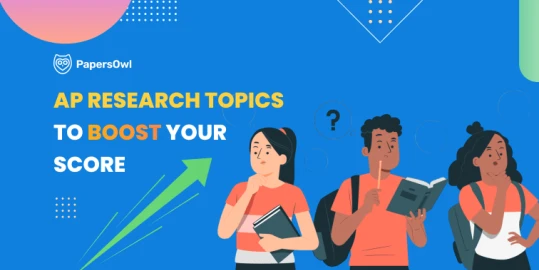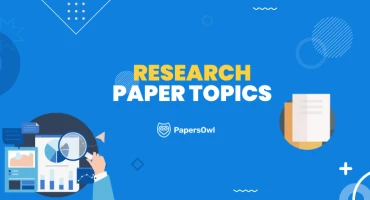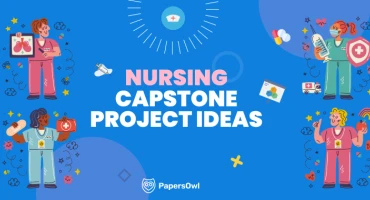- AP Research is the second course in the AP Capstone Program.
- Students write a 4,000–5,000-word paper worth 75% of the grade.
- Students give a 15–20 minute presentation with 3–4 questions worth 25%.
- A topic must be feasible: consider method, access to data, ethics, and completion within one school year.
- Strong choices connect to fields like medical research topics.
- Both AP Seminar research topics and AP Research train students in inquiry, but AP Research requires deeper evidence and an AP research paper.
- The course develops skills for future scientific research and independent academic work.
Top 30 Feasible AP Research Topics for 2025
Choosing the right theme is essential for success in AP Research. Frequently, students begin by exploring research topics in education and generating AP research topic ideas based on real-world challenges.
The list below includes AP research topics and subjects considered the best AP research topics. Some topics focus on global issues such as renewable energy sources or environmental shifts. In contrast, others examine notable past events like the era of industrialization or student-focused problems, including mental well-being.
This guide also helps students select a feasible, interesting topic that meets all AP Research requirements. The sequence of tags (Method | Data source | Ethics risk | Scope | Time fit) shows how practical each idea is for a one-year project.
1. The impact of climate change policies on rural farming communities.
Survey | Census / World Bank | Low | Medium | Realistic ≤ 1 year
2. How mental health support programs affect high school students’ stress
Survey | Local survey | Medium | Narrow | Realistic ≤ 1 year
3. Renewable energy investment trends in developing countries
Correlation | World Bank | Low | Broad | Realistic if narrowed
4. Shifts in labor rights since the era of industrialization and modern gig work
Secondary data | Historical archives | Low | Broad | Realistic if narrowed
5. The role of school clubs in boosting AP Research student confidence
Survey | School data | Low | Narrow | Realistic ≤ 1 year
6. Effective teacher strategies to match diverse AP Research topic styles
Experiment | Classroom data | Medium | Narrow | Realistic ≤ 1 year
7. How arts participation reflects good AP Research in social connection
Survey | Local schools | Low | Narrow | Realistic ≤ 1 year
8. A global comparison of water access as one of the best AP Research topics
Secondary data | UN / World Bank | Medium | Medium | Realistic ≤ 1 year
9. How video game design can drive civic learning in developing countries
Experiment | Online surveys | Medium | Medium | Realistic ≤ 1 year
10. Urban policy innovations to slow migration due to environmental shifts
Correlation | Census data | Low | Medium | Realistic ≤ 1 year
11. The role of community projects in promoting teen mental well-being
Survey | Local organizations | Medium | Narrow | Realistic ≤ 1 year
12. The economic power shifts triggered by the Industrial Revolution in Europe
Secondary data | Historical archives | Low | Broad | Realistic if narrowed
13. Social enterprise solutions that align with AP Research values
Case study | NGO reports | Low | Medium | Realistic ≤ 1 year
14. Strategies for teaching AP Research topics in multicultural classrooms
Experiment | Classroom observation | Medium | Narrow | Realistic ≤ 1 year
15. Analyzing art festivals as examples of good AP Research in civic pride
Survey | Event data | Low | Narrow | Realistic ≤ 1 year
16. Best practices for recycling policy as one of the best AP Research topics
Content analysis | Local government data | Low | Narrow | Realistic ≤ 1 year
17. The effect of health campaigns on nutrition in developing countries
Survey | NGO reports | Medium | Medium | Realistic if data exists
18. Evaluating school gardens in fighting environmental shifts locally
Experiment | School records | Low | Narrow | Realistic ≤ 1 year
19. Links between music therapy and student mental health growth
Experiment | School data | Medium | Narrow | Realistic ≤ 1 year
20. Political reforms tied to worker safety since the Industrial Revolution
Secondary data | Historical archives | Low | Broad | Realistic if narrowed
21. Peer mentoring groups that foster stronger AP Research study habits
Survey | School survey | Low | Narrow | Realistic ≤ 1 year
22. The role of parental engagement in AP Research topic success rates
Survey | School / parent data | Medium | Narrow | Realistic ≤ 1 year
23. Local sports programs as good AP Research for youth discipline
Survey | Program data | Low | Narrow | Realistic ≤ 1 year
24. Best innovations in renewable energy as the best AP Research topics
Correlation | Industry reports | Low | Medium | Realistic ≤ 1 year
25. Healthcare delivery barriers faced by migrants in low-income nations
Survey | NGO reports | High | Medium | Realistic if using secondary data
26. City planning models designed to adapt to climate change flooding
Correlation | Census / urban data | Low | Broad | Realistic if narrowed
27. School counseling as prevention support for teen mental well-being issues
Survey | School data | Medium | Narrow | Realistic ≤ 1 year
28. How textile reform laws evolved after the era of industrialization
Secondary data | Historical archives | Low | Broad | Realistic if narrowed
29. The rise of online tutoring and its link to AP Research outcomes
Survey | Online platforms | Low | Narrow | Realistic ≤ 1 year
30. Using documentaries to raise awareness of AP Research topic issues
Content analysis | Media sources | Low | Narrow | Realistic ≤ 1 year
Full List — 200 AP Research Topics by Field
AP Research is more than just writing a research paper: it is a structured process where students select challenging AP research topics, test ideas, and present results.
Understanding what is a capstone project in research is key since it combines analysis, critical thinking, and independent study. Thus, each research topic gives students a chance to practice real academic inquiry.
Exploring good AP research also prepares high school students for future college projects and advanced study skills.
STEM and Technology
STEM and Technology AP research topics focus on AP research ideas that explore science, tech, and engineering. Popular AP research topics include studying artificial intelligence, evaluating realistic approaches for environmental issues, and analyzing mental well-being impacts from technology.
- Artificial intelligence applications in classrooms
- Effective AP project in renewable energy solutions
- Realistic approaches for reducing carbon emissions
- Environmental shifts’ impacts on American domestic life
- Mental well-being effects of screen time
- Machine intelligence in healthcare diagnostics
- Effective AP project in robotics and automation
- Practical solutions for urban traffic congestion
- Environmental shifts and agricultural productivity
- Mental well-being support through wearable technology
- Artificial intelligence in environmental monitoring
- Good AP research in smart home technology
- Realistic approaches for water conservation
- Climate change adaptation in coastal cities
- Mental health interventions using virtual reality
- Machine intelligence for cybersecurity
- Effective AP project in drone applications
- Practical solutions for energy-efficient transport
- Environmental shifts modeling using AI
- Mental well-being trends in remote learning
- Machine intelligence in public safety
- Effective AP project on sustainable technology
- Realistic approaches for electronic waste
- Environmental shifts education programs for teens
- Mental well-being monitoring using mobile apps
Health and Medicine
Health and Medicine topics guide students to focus on good AP research topics and create meaningful research papers about mental well-being, community wellness, and human health.
Projects often analyze trends, interventions, and outcomes in community well-being and environmental factors like the planetary climate crisis or aquatic organisms.
- Mental well-being support for upper-school learners
- Community wellness campaigns and community awareness
- Human health effects of air pollution
- Community well-being initiatives in rural areas
- Marine life conservation and human impact
- Planetary climate crisis effects on community wellness
- Mental well-being interventions in schools
- Human health and diet-related chronic diseases
- Public health policies and vaccination uptake
- Mental well-being support using telemedicine
- Community well-being impact of urban planning
- Planetary climate crisis and vector-borne diseases
- Aquatic organisms, biodiversity, and local communities
- Mental well-being awareness on social media
- Human health risks from industrial pollution
- Community wellness and access to clean water
- Community well-being programs for adolescents
- Mental well-being effects of academic pressure
- Climate change adaptation in healthcare systems
- Marine life and sustainable fishing practices
- Human health benefits of physical activity
- Mental health stigma reduction strategies
- Public health response to pandemics
- Community health education for families
- Mental health and sleep patterns in teens
Environmental Science and Sustainability
Environmental Science topics use AP Seminar topic ideas to explore the impact of humans on nature. Students can investigate planetary climate crisis, conservation efforts, severe climate events, and environmental resources to understand environmental challenges in rural versus urban areas while linking to mental well-being and community well-being.
- Conservation efforts to protect endangered species
- Severe climate events and community preparedness
- Environmental resources management in low-income nations
- Planetary climate crisis effects on small towns vs. metropolitan areas
- Mental well-being benefits of green spaces
- Environmental protection initiatives in marine ecosystems
- Intense weather patterns and school infrastructure
- Environmental resources usage and sustainability
- Environmental shifts and adaptation strategies in cities
- Mental health effects of environmental disasters
- Conservation efforts in national parks
- severe climate events and public safety policies
- Natural resources and renewable energy adoption
- Climate change education for upper-school learners
- Mental well-being and environmental awareness campaigns
- Environmental protection initiatives in freshwater ecosystems
- Intense weather patterns and economic impacts
- Environmental resources and sustainable agriculture
- Environmental shifts and urban planning solutions
- Mental well-being benefits of eco-friendly communities
- Environmental protection initiatives in wildlife corridors
- Intense weather patterns and insurance challenges
- Natural resources depletion and policy solutions
- Climate change mitigation strategies
- Mental health support after natural disasters
Social Sciences and Psychology
Social Sciences and Psychology topics use AP Seminar research questions examples to study human behavior, social trends, and psychological patterns. Students can explore psychological effects, the civil rights movement, societal changes, national identity, wildlife conservation, ethical implications, and mental well-being impacts in modern society.
- Civil rights movement and youth activism
- Societal changes in American family life
- National identity and immigrant communities
- Wildlife conservation through education
- Ethical implications of AI in decision-making
- Mental health effects of remote learning
- Psychological effects of bullying in schools
- The Civil Rights Movement amongst modern society movements
- Societal changes in digital communication
- National character and global citizenship
- Wildlife conservation in urban areas
- Ethical implications of genetic testing
- Mental well-being and academic stress
- Psychological effects of video games
- Civil rights movement and voting rights
- Cultural shifts in gender roles
- National character in historical education
- Wildlife conservation in marine ecosystems
- Ethical implications of social media algorithms
- Mental well-being support for refugees
- Psychological effects of parental expectations
- Racial justice struggle and education policies
- Societal changes in political engagement
- Mental health interventions in communities
- Psychological effects of social media on teens
Education and Policy
Education and Policy topics use AP research questions to investigate academic achievement, academic involvement, different teaching methods, early childhood education, developmental outcomes, investigative skills, and modern challenges like biotechnology modification.
- Student engagement strategies in remote learning
- Different teaching methods for diverse learners
- Preschool learning and literacy outcomes
- Developmental outcomes of bilingual education
- Research skills improvement in upper-school learners
- Biotechnology modification and ethical considerations in schools
- Academic achievement in STEM programs
- Student engagement and project-based learning
- Alternative teaching strategies and learning styles
- Preschool learning programs in urban areas
- Developmental achievements of music education
- Research skills in science projects
- Genetic engineering awareness in upper-school learners
- Academic achievement and school attendance
- Academic involvement in extracurricular activities
- Alternative teaching strategies for online learners
- Preschool learning and social development
- Developmental achievements of physical education
- Investigative skills through community projects
- Genetic engineering debates in classroom discussions
- Academic accomplishments and teacher feedback
- Academic involvement and collaborative learning
- Alternative teaching strategies and standardized tests
- Early childhood education policies and outcomes
- Academic achievement and technology use in classrooms
Business and Economics
Business and Economics topics often grow from AP seminar projects. Students may analyze consumer behavior, explore online marketing, measure public opinion, or study student success in different contexts.
- Purchasing patterns in online shopping among teens
- Digital marketing influence on upper-school learners
- Societal views on eco-friendly energy adoption
- Educational accomplishment and access to technology
- Cognitive function and multitasking in classrooms
- Consumer behavior and brand loyalty in youth
- Online marketing strategies on social media platforms
- Societal views on environmental shift policies
- Educational accomplishment and study habits
- Intellectual capacity improvement through exercise
- Purchasing patterns and ethical shopping choices
- Digital marketing and influencer culture
- Public opinion on regional community initiatives
- Educational accomplishment and peer support networks
- Intellectual capacity and memory training apps
- Buyer behavior in fast fashion trends
- Online marketing and video advertising
- Societal views on education reforms
- Student success and school funding
- Cognitive function in digital learning
- Buyer behavior in mobile app usage
- Online marketing and data privacy concerns
- Societal views on social justice issues
- Educational accomplishment in after-school programs
- Buyer behavior and eco-friendly products
Arts and Humanities
Arts and Humanities projects grow from research topics for the AP seminar. Students can link creative expression to history and society, exploring World War II, global conflicts, notable past events, and the role of campaign speeches. Modern students may also reflect on issues like gun control laws, adult mental well-being, and cognitive development.
- Worldwide conflict and the role of women in society
- Historical events in art and literature
- Political speeches and their cultural impact
- Gun control laws in American history
- Adult mental well-being and art therapy
- Cognitive development through music education
- World War II and technology innovations
- Worldwide conflict and international diplomacy
- Notable past events and their role in national character
- Campaign speeches and public trust
- Firearm control policies and constitutional debates
- Adult mental health in modern workplaces
- Cognitive development and bilingual education
- World wars, films, and historical memory
- Worldwide conflict and youth perspectives
- Historical events and civic education
- Political speeches in election campaigns
- Firearm control policies and student safety
- Adult mental health and stress management
- Intellectual development through theater programs
- World wars and global alliances
- Global war narratives in school textbooks
- Notable past events shaping local communities
- Political orations and leadership styles
- Worldwide conflict and propaganda in the media
Tech & Society Connections
Tech & Society topics grow from the AP research topics list. They examine the balance between innovation and social outcomes. Students may study social media dependency, cutting-edge tech, and how a subject that genuinely interests them links to psychological and social impacts, regional community, educational outcomes, and thought process maturation.
- Social media addiction and student productivity
- Cutting-edge tech in eco-friendly energy adoption
- Transforming student passions into research opportunities
- Psychological and social impacts of online learning
- Regional community responses to climate change
- Academic performance and digital distractions
- Cognitive development through online education
- Social media dependency and sleep patterns
- Upcoming technological trends in healthcare systems
- The role of genuine interest in crafting research questions
- Behavioral and community impacts of gaming culture
- Regional community resilience during extreme weather events
- Educational outcomes in project-based schools
- Thought process maturation in early digital exposure
- Social media addiction and peer relationships
- Upcoming technological trends in transportation systems
- Curiosity as the key to lifelong independent learning
- Mental and societal effects of influencer culture
- Regional community use of renewable energy sources
- Academic performance and study apps
- Intellectual development through coding education
- Social media dependency and mental health support
- Emerging technologies in ecological science
- Balancing passion and process in academic research
- Mental and societal effects of online activism

Turn a Topic into a Research Question
Many students start with broad ideas but do not know how to shape them into questions. Strong questions matter because there are not enough — in AP Research, you must design a study that fits data, method, and ethics.
Turning ideas into questions also makes your AP research paper focused and practical.
5 Templates for Research Questions
- Experiment: “Does [factor] cause a change in [outcome] among [group]?”
Example: Does daily online learning practice improve academic performance in grade 10 students? - Correlation: “Is there a relationship between [variable A] and [variable B]?”
Example: Is there a link between hours of online learning and final exam scores? - Content Analysis: “How is [theme] represented in [media/text]?”
Example: How is academic performance shown in social media posts by students? - Secondary Data: “What do existing datasets show about [trend/issue]?”
Example: What do national surveys reveal about AP research topic ideas on digital learning habits? - Mixed Method: “How do [qualitative insights] support or explain [quantitative results]?”
Example: How do student interviews explain the test score results from the effective AP project on study habits?
2 Examples from Student Samples (AP Central)
- Topic → Question:
- Topic: The effect of study playlists on grades
- Research question: “Does listening to background music while studying improve academic performance in upper-school learners?”
- Topic → Question:
- Topic: Social media and teen learning
- Research question: “What is the relationship between daily use of social media and outcomes in AP research paper writing skills?”
Methods Quick Guide
The best AP research topics depend on your method choice. Your AP research paper must clearly explain why surveys, experiments, correlations, or secondary data fit the problem. Choosing well saves time and improves credibility.
When to choose each method in AP Research:
| Method | When to Use | Paraphrasing Formulas (3 examples) | Sample Research Question |
| Experiment | When you can manipulate one factor and measure its effect on an outcome (causal). | 1. Does [factor] cause [outcome] in [group]? 2. How does [intervention] affect [outcome]? 3. If [factor] is introduced, how does [group] change? | Does daily meditation reduce exam stress in grade 11 students? |
| Correlation | When you do not intervene, you only examine relationships between variables. | 1. Is there a relationship between [A] and [B]? 2. To what extent is [A] associated with [B]? 3. How does [A] vary with [B] in [group]? | Is there a link between TikTok use and GPA? |
| Content Analysis | When you analyze texts, videos, ads, or other media to identify patterns. | 1. How is [theme] represented in [media]? 2. What patterns emerge in [media] regarding [topic]? 3. How do [media sources] frame [issue]? | How is climate change framed in TikTok videos? |
| Secondary Data | When existing datasets allow you to test hypotheses without collecting new data. | 1. What do existing datasets show about [issue]? 2. How have [trends] changed in [dataset] over time? 3. What differences appear in [dataset] regarding [group]? | What do CDC datasets reveal about vaping trends among teens? |
Data Sources for High-School Research
Finding data is one of the hardest steps in research topics for AP Research. Reliable datasets make your paper credible and ethical. Learn how to spot credible sources, trust academic literature, and build on existing research.
A quick reference to credible, publicly available datasets for AP Research:
- Pew Research Center: Surveys on public opinion, social trends, and psychology; useful for social science projects.
- Census / BLS (Bureau of Labor Statistics): Demographics, employment, income; ideal for economics, education, or population studies.
- World Bank: Global development, poverty, and eco-friendly energy data; great for international and environmental research.
- NOAA / NASA: Climate, weather, and space science data; essential for ecological science or STEM topics.
- CDC (Centers for Disease Control and Prevention): Public health, disease statistics, and health behavior surveys; key for health and medicine research.
- ICPSR (Inter-university Consortium for Political and Social Research): Social science studies archive; useful for longitudinal or historical analysis.
- GSS (General Social Survey): Long-running survey on U.S. social trends; perfect for psychology or sociology projects.
- Kaggle (public datasets): Open data for practice, modeling, and computational projects; suitable for STEM, statistics, or tech-focused research.
HSRB/IRB Basics for AP Research Paper
All AP Research projects must consider ethical issues and, when applicable, obtain teacher or IRB/HSRB approval before data collection.
Key points:
- When approval is needed: Any study involving human participants, especially vulnerable groups (minors, individuals with disabilities, at-risk populations).
- What to check: Potential risks, privacy, informed consent, and whether participation could cause harm.
- Vulnerable groups: Minors, the elderly, people with cognitive or physical impairments, or anyone in a high-risk situation.
- Why retroactive approval doesn’t work: AP Research requires prior oversight — collecting data before review violates ethical standards and College Board policy (AP Research Course & Exam Description, 2025).
AP Research vs AP Seminar Topics
Students often confuse AP Seminar and AP Research, especially when choosing research topics for AP Seminar that might later transition into AP Research.
AP Seminar builds skills with teamwork and sources. Instead, AP Research focuses on an independent project and AP Research questions. Knowing the gap helps you plan early.
Good AP seminar topics focus on teamwork, argument building, and source analysis. They are designed to develop collaborative research and critical and analytical thinking skills.
AP Research, in contrast, is an individual project: a 4,000–5,000-word paper, your own method choice, and a presentation with oral defense. Understanding the distinction helps students plan independent research without mixing course requirements.
Main differences for students:
- In AP Class Discussion, your AP Research teacher guides source analysis
- In AP Research, you earn college credit with a formal paper
- The AP Research process allows long-term studies like eco-friendly energy adoption projects
- Motivation matters: high student motivation and critical thinking predict success






